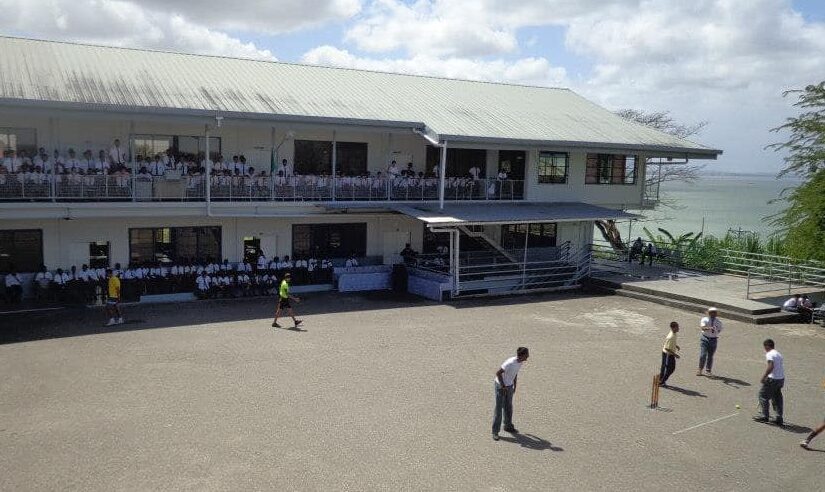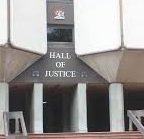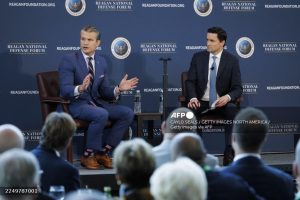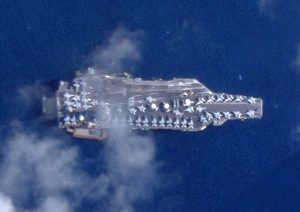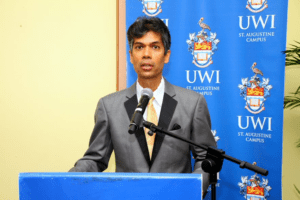
IN 1894, South Trinidad welcomed the opening of the Naparima Training College for teachers.
The secondary classes which became Naparima College were initially merged with classes of the Naparima Training College.
At the close of the 19th century, in 1898, Rev Kenneth Grant was able to purchase buildings and land nearby his home, known as – Oriental Hall. This served as the home for Naparima Training College, Naparima College and the Presbyterian Training College.
Two years later, Naparima College was formally inaugurated and its status enhanced as it was affiliated with the prestigious Queen’s Royal College located in the colony’s capital of Port of Spain.
The early Naparima College retained a Canadian character as it was modelled on Pictou, Nova Scotia.
By 1900, Naparima College was officially recognised as an Assisted School, and had a population of 50 students and a relatively small staff of four teachers.
In 1904, the first class graduated with the Cambridge Senior School Certificate which was issued by the Cambridge Examination Syndicate in Britain.
In 1912, girls in South Trinidad now had the privilege of attending the newly opened Naparima Girls’ High School.
More than a decade later, in 1917 buildings were constructed at Paradise Pastures for Naparima Boys’ College and benefitted from a scenic view of the Gulf of Paria.
In 1917, the indentureship system ended and Indians were no longer imported from India to work on the sugar estates in the British West Indies.
The decision to end indentureship resulted in reduced use of the Hindi language in churches and schools.
Furthermore, the government and society tended to favour English rather than dialects, as the colony’s official language. Even though Hindi was no longer taught in Presbyterian schools there was the continuation of bhajan singing at special occasions and prayer meetings.
Interestingly, Naparima College began to develop not as a school for the upper class, elite or privileged but one in which the children of the working class could obtain a quality education.
During the 1920s, five bursaries were awarded by Naparima College, to the boys attaining the highest marks.
The Naparima College Bursary Examinations was open to boys from schools in San Fernando and East Indians who attended Canadian Mission (CM) schools. In March 1926 the school population was estimated at 120 students.
The two top students were awarded the Senior Cambridge Medal and Junior Cambridge Medal.
In the Middle School, 18 students sat the Cambridge Syndicate Examinations. By 1929 the increasing student population led to the formation of a vibrant Student Council.
In 1923, Rev Victor B Walls of Blackville, New Brunswick was appointed principal of Naparima College.
The Walls moved into residence on Paradise Hill and began to work with the school’s population of 85 students in 1925. Rev Walls served in the Canadian Army Medical Corps where he met his future wife, Marion Smith, an Australian who served as an army nurse during World War One.
Whilst at Naparima College, Mrs Walls continued her medical tradition. She attended to ulcers, fractures, scorpion stings, jiggers, cuts and sprains. Subsequently, Mrs Walls spearheaded the establishment of the Naparima College Infirmary which comprised an office, there independent rooms and two small wards.
As medical cases increased the wards began training the college’s students in First Aid and Home Nursing. Such activity led to the publication of A Handbook on First Aid and Home Nursing and the creation of the Naparima College First Aid Ambulance Corps.
Exams were held and certificates distributed to participants and in 1935 a special course was held at Naparima College for instructors who desired to train others in First Aid.
The outstanding work of the Walls did not go unrecognised. In 1938, a committee under the chairmanship of Rev Walls applied to London for a “Trinidad and Tobago Branch of the British Red Cross Society”. A year later in 1939 the group was approved and inaugurated.
A division occurred in the work of the Canadian mission in British Guiana and Trinidad during the 1920s.
The disruption in the religious relationship stemmed from a schism in the Presbyterian Church in Canada in which a faction of Presbyterians joined with the Baptists and Methodists in 1925 to form the United Church of Canada.
Thereafter, the mission in British Guiana continued its association with the Presbyterian
Church in Canada whilst the Trinidad mission forged a bond with the newly established United Church of Canada.
Dr Jerome Teelucksingh is an activist. He initiated the inaugural observances of International Day for the Elimination of Violence Against Men and Boys (January 31) and World Day of the Boy Child (May 16). He has made academic presentations at tertiary institutions including Harvard University and Oxford University.
See other articles by Dr Jerome Teelucksingh on AZP News:
The Glorious City of Port of Spain
Have we Forgotten George Padmore
Nobody Cares about Underachievement
Can we Eradicate Underachievement?
A Quiet Pandemic: Male Underachievement
The Blackest Thing in Slavery wasn’t Slaves
The Importance of Emancipation Day
Tobago’s Working Class in the 1920s, 1930s
Are Humble Caring Fathers Champions?
Influencing West Indian Masculinity
Defining Caribbean Masculinity
Is Monogamy Encouraged in the Caribbean
Naps Girls: From Humble Beginnings to Excellence
US Media Creates Cultural Dependency in the Caribbean
Bloodless Revolution to Save Lives in Developing Countries
The Need for a Social and Moral Revolution
The Law of Supply and Demand in Developing Countries
End the Dependency for Developing Countries
T&T Carnival and the Emperor’s New Clothes
The Influence of Labour on Caribbean Integration
The illusion of political Unity
Presbyterians in Trinidad: Humble Missionaries, Local Workers
Religious Plurality: Curse or Blessing
Caribbean Youth Need Optimism, Patriotism
Rethinking Identities in Caribbean, Latin America
November 19: All Inclusive International Men’s Day
Should International Agencies be Blamed for Unemployment
A Need to Observe Word Unemployment Day
An Ideology for the Trade Union Movement
The Man who Couldn’t be Prime Minister
Social Outburst vs Social Revolution
Challenges of the Men’s Movement
If George Floyd was Denied Parole
The Meaning of Indian Arrival Day in T&T
International Men’s Day – A Way of Life
Wounds that cause school violence
May Day: A Time for Solidarity, Strength
Who Coined the Term ‘Black Power’
The illusion of political Unity
Presbyterians in Trinidad: Humble Missionaries, Local Workers
Religious Plurality: Curse or Blessing
Caribbean Youth Need Optimism, Patriotism
Rethinking Identities in Caribbean, Latin America
November 19: All Inclusive International Men’s Day
Should International Agencies be Blamed for Unemployment
A Need to Observe Word Unemployment Day
An Ideology for the Trade Union Movement
The Man who Couldn’t be Prime Minister
Social Outburst vs Social Revolution
Challenges of the Men’s Movement
If George Floyd was Denied Parole
The Meaning of Indian Arrival Day in T&T
International Men’s Day – A Way of Life
Wounds that cause school violence
May Day: A Time for Solidarity, Strength
Who Coined the Term ‘Black Power’
![]()


